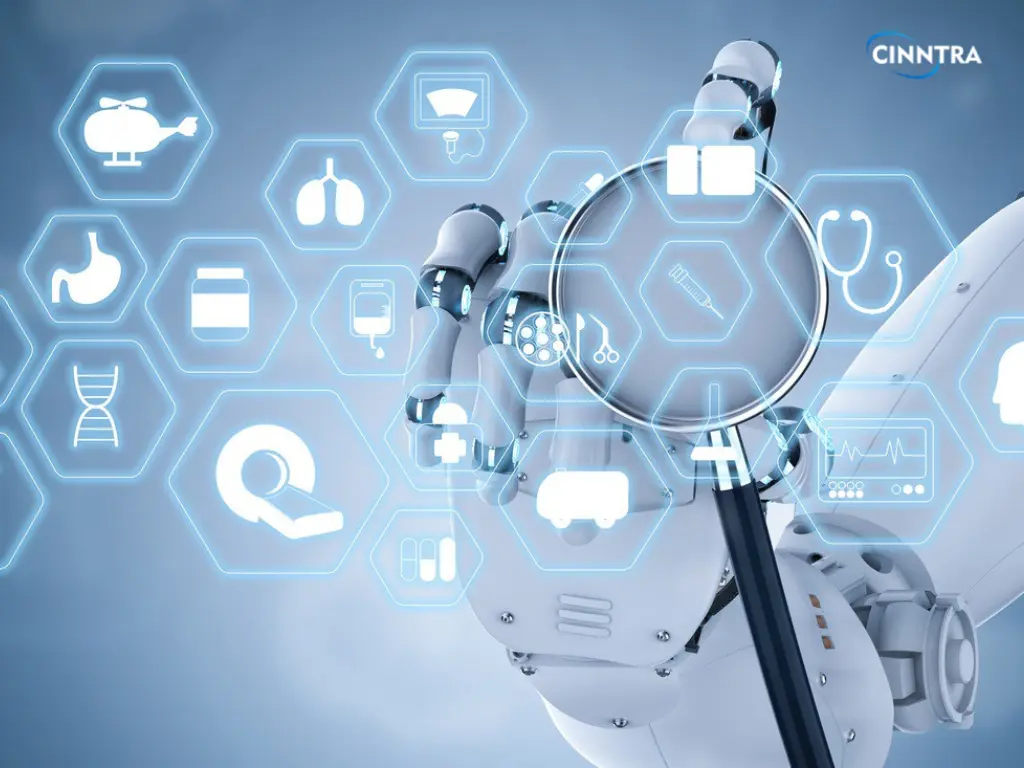Benefits of Robotic Process Automation in Healthcare

This blog outlines 4 uses of RPA in healthcare which will save time, money, and resources, as well as improve the quality of care that patients receive.
- Scheduling and Rescheduling Appointments
Automated data collection and processing
- RPA supports the automation and optimization of transferable and confidential patient data that includes age, location, medical conditions, and treatments.
- It can schedule doctors' appointments in such a way that all patients obtain care from their preferred physician.
- The patient can provide their complete healthcare profile online and RPA bots can schedule appointments based on the following
➟ Previous diagnoses
➟ Preferences and need
➟ Doctor's availability
➟ Facilities and equipment required
➟ Most convenient times
➟ Locations, and other factors
➟ It provides up-to-date front-office support
Besides that, manually rescheduling appointments is a complex task, especially in times of emergency. Robots also facilitate setting timely reminders and notifications concerning appointments.
- Medical Billing
- Billing is a tedious task as it involves loads of calculation and evaluation of various bills throughout the patient's time at the hospital. The medical bill includes a range of tests, prescriptions, food, nursing charges, and doctor’s fee.
Also, several sections including the billing department, administration as well as clinicians are involved in the medical billing process.
Manually handling all this is time-consuming and increases the chances of error. RPA on the other hand can help automate and standardize routine inefficient tasks.
- It facilitates accurate calculations, eliminates errors, and reduces billing time which can sometimes otherwise exceed hours.
- RPA can automate every possible medical billing process including
➟ Patient Registration
➟ Claim Generation
➟ Insurance Verification
➟ Payment Accessibility
➟ Patient Eligibility Checks
➟ Follow-ups
➟ Denial Management, and much more
It Frees up manpower and focuses on patients.
- Workflow management
- Employees and healthcare professionals have to perform a sequence of repetitive administrative, mental or physical tasks.
And in order to deliver high-quality healthcare services, workflow needs to be streamlined.
Manual work is like a necessary evil-besides maintaining the health records, it is important to ensure the accuracy and consistency of paperwork.
- Not just being consistent, healthcare records should comply with HIPAA regulations.
- RPA reduces the cost of operation and makes workflow more efficient.
- Claim Management
- Making claims as a healthcare practitioner involves complicated procedures, data entry, processing, and evaluation.
- RPA enables healthcare institutions to easily submit claims to insurance providers.
- Additionally, following rules reduce the likelihood of claims being denied.
- To manage insurance claims, healthcare practitioners can use RPA. The processes are made easier and more efficient in order to satisfy the necessary standard.
- RPA bots also expedite error-free claim data processing in addition to that. Additionally, robotic process automation can help detect any regulatory exceptions that may exist
Bringing it all together
Overall, RPA can provide businesses with a rapid return on investment and can help to reduce staffing headaches, by making it easier to have the right level of staff at the right time.
Improve the patient experience from scheduling visits to treatments to billing.
Get an RPA Solution for your Business from us
+91-8882709959 | [email protected]



0 Comments